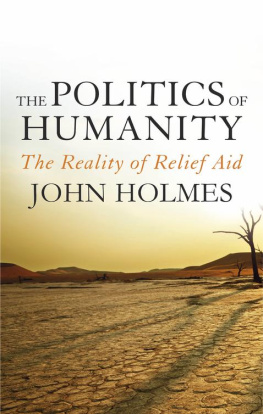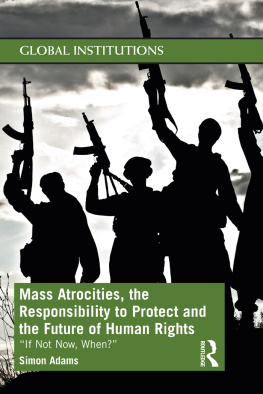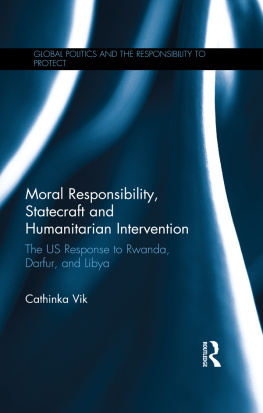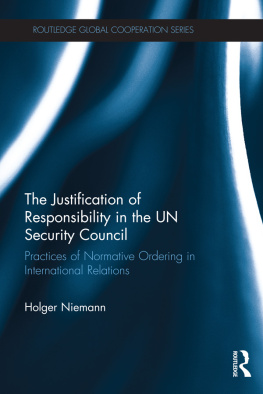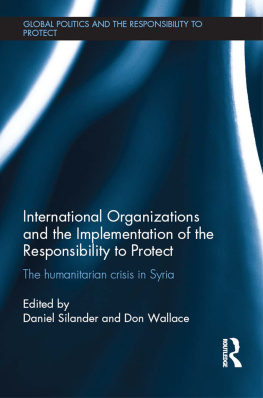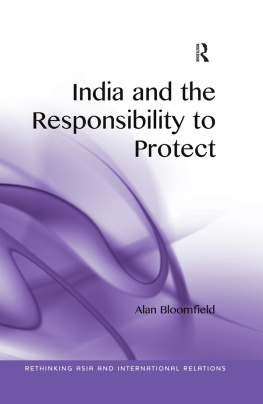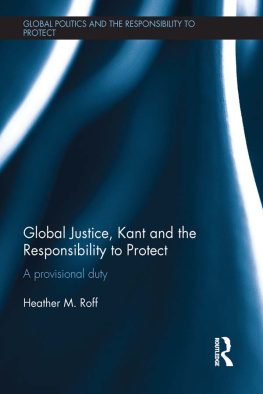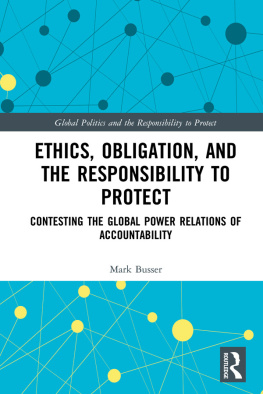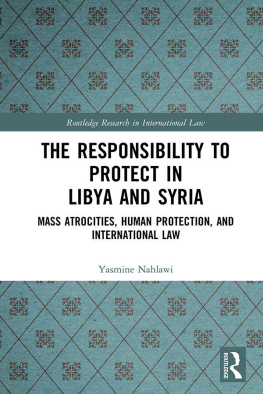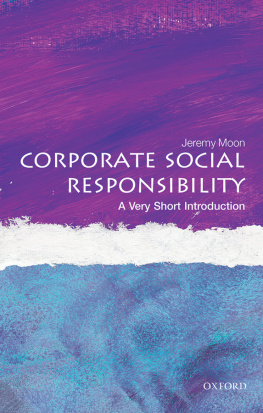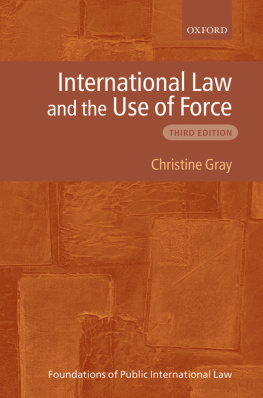
Global Politics and the Responsibility to Protect
This book provides an in-depth introduction to, and analysis of, the issues relating to the implementation of the Responsibility to Protect principle in international relations.
The Responsibility to Protect (RtoP) has come a long way in a short space of time. It was endorsed by the General Assembly of the UN in 2005, and unanimously reaffirmed by the Security Council in 2006 (Resolution 1674) and 2009 (Resolution 1894). UN Secretary-General Ban Ki-moon has identified the challenge of implementing RtoP as one of the cornerstones of his Secretary-Generalship. The principle has also become part of the working language of international engagement with humanitarian crises and has been debated in relation to almost every recent international crisis including Sudan, Sri Lanka, Myanmar, Georgia, the Democratic Republic of Congo, Darfur and Somalia.
Concentrating mainly on implementation challenges including the pre vention of genocide and mass atrocities, strengthening the UNs capacity to respond, and the role of regional organizations, this book introduces readers to contemporary debates on RtoP and provides the first book-length analysis of the implementation agenda.
The book will be of great interest to students of the responsibility to protect, humanitarian intervention, human rights, foreign policy, security studies and IR and politics in general.
Alex J. Bellamy is Professor of International Security at the Griffith Asia Institute/Centre for Governance and Public Policy, Griffith University, Australia. From 2007 to 2010 he was Executive Director of the Asia-Pacific Centre for the Responsibility to Protect.
Global Politics and the Responsibility to Protect
Series Editors: Alex J. Bellamy, Griffith University , Sara E. Davies Griffith University and Monica Serrano, The City University New York
The aim of this book series is to gather the best new thinking about the Responsibility to Protect into a core set of volumes that provides a definitive account of the principle, its implementation, and role in crises, that reflects a plurality of views and regional perspectives.
Global Politics and the Responsibility to Protect
From words to deeds
Alex J. Bellamy
The Responsibility to Protect
Norms, laws and the use of force in international politics
Ramesh Thakur
Global Politics and the Responsibility to Protect
From words to deeds
Alex J. Bellamy

LONDON AND NEW YORK
First published 2011
by Routledge
2 Park Square, Milton Park, Abingdon, Oxon OX14 4RN
Simultaneously published in the USA and Canada
by Routledge
270 Madison Ave, New York, NY 10016
Routledge is an imprint of the Taylor & Francis Group, an informa business
This edition published in the Taylor & Francis e-Library, 2011.
To purchase your own copy of this or any of Taylor & Francis or Routledges collection of thousands of eBooks please go to www.eBookstore.tandf.co.uk.
2011 Alex J. Bellamy
The right of Alex J. Bellamy to be identified as author of this work has been asserted by him in accordance with sections 77 and 78 of the Copyright, Designs and Patents Act 1988.
All rights reserved. No part of this book may be reprinted or reproduced or utilised in any form or by any electronic, mechanical, or other means, now known or hereafter invented, including photocopying and recording, or in any information storage or retrieval system, without permission in writing from the publishers.
British Library Cataloguing in Publication Data
A catalogue record for this book is available from the British Library
Library of Congress Cataloging-in-Publication Data
Bellamy, Alex J., 1975
Global politics and the responsibilty to protect: from words to deeds/
Alex J. Bellamy.
p. cm.
1. United Nations. 2. Humanitarian intervention. 3. Peacekeeping
forces. 4. Peace-building. 5. Democratization. 6. Security,
International. I. Title.
JZ4971.B45 2010
341.584dc22 2010022535
ISBN 0-203-83716-9 Master e-book ISBN
ISBN13: 9780-415567350 (hbk)
ISBN13: 9780415567367 (pbk)
ISBN13: 9780203837160 (ebk)
For Isaac
Contents
Illustrations
Figures
4.1 | Rebellions against established governments 19902008 (all years) |
4.2 | Number of new episodes of genocidal violence (with more than 5,000 intentional fatalities), 19452008 |
5.1 | Democracy and atrocity 19452010 |
Tables
4.1 | Number of rebellions against established governments 19902008 (summary at three-year intervals) |
4.2 | Proportion of rebellions that escalate into armed conflict 19902008 (three-year summary) |
4.3 | Duration of episodes of genocidal violence |
5.1 | Atrocities outside war by regime type 19452010 |
6.1 | Early warning systems |
Acknowledgements
This book is the culmination of many years work on the Responsibility to Protect, some of it with extremely able collaborators. My wife, colleague, and best friend Sara Davies helped write on regional arrangements and has played a pivotal part in everything Ive done on this topic. In addition to co-writing a chapter in this book, she read the entire manuscript and offered sage advice. She also played the leading role in establishing the journal Global Responsibility to Protect and the book series of which this volume is a part. She is a talented scholar, wonderful wife and the best mum that our little boy Isaac could hope for. She has my unlimited and unending love and gratitude.
For more than a decade now, Ive also benefited from the wisdom of my dear friend and colleague, Paul Williams, whose scholarship I admire and friendship I treasure. This book draws on a lot of the research and ideas that we have developed together in the past few years, especially relating to peace operations, the protection of civilians, and the question of moral hazard. Pauls influence can be seen on every page.
While all errors of fact and judgment are of course my own, the ideas in this book have benefited immensely from road-testing and the wise insights and advice of a number of people. Thanks here to Mely Caballero-Anthony, Sapna Chhatpar, Gareth Evans, Paul Evans, Brian Job, Herman Kraft, Edward Luck, Monica Serrano, Rizal Sukma, Ramesh Thakur, Thomas Weiss, Nicholas Wheeler, and Lawrence Woocher.
Finally, I owe a debt of gratitude to my former colleagues at the Asia-Pacific Centre for the Responsibility to Protect and to the students that I have worked with on all things RtoP, especially Noel Morada, Sarah Teitt, Stephen Mcloughlin, Luke Glanville, Jess Gifkins, Catherine Drummond, Deborah Mayersen and Annie Pohlman and the indefatigable and always helpful Marie Hobman.


